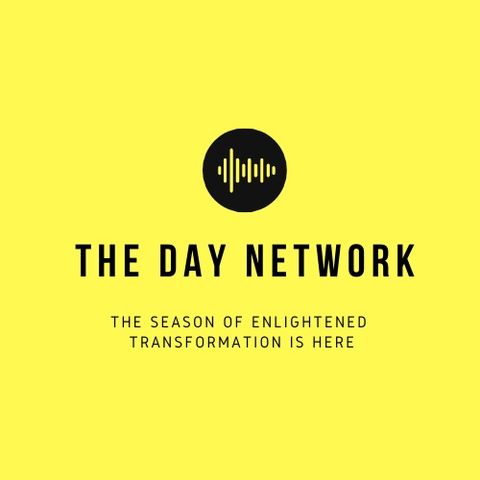Book of Exodus Chapter 33 The Command to Leave Mt. Sinai

Regístrate gratis
Escucha este episodio y muchos más. ¡Disfruta de los mejores podcasts en Spreaker!
Descarga y escucha en cualquier lugar
Descarga tus episodios favoritos y disfrútalos, ¡dondequiera que estés! Regístrate o inicia sesión ahora para acceder a la escucha sin conexión.
Descripción
In this episode we continue studying the Book of Exodus. In this episode, after the people are rebuked for making and worshipping a calf made of gold. God told the...
mostra másWhen the people heard God was angry with them and wasn't going with them, they began to mourn. And shortly after, Moses removed the tabernacle outside the camp far away from the people.
The people could see the tabernacle and the pillar of the cloud and they worshipped God from their tents.
We note that true worship starts at the doors of our home and brings forth undefiled corporate worship.
Before God brought them out of Egypt, the blood of the Lamb was applied to the doorposts of their houses. A lamb for a house. And we saw in the last chapter that entire households were involved in sin.
Entire families answered the call to come worship at the altar, where Aaron had taken the life of an animal to honor a calf made of gold.
Fathers, mothers, sons, daughters, sisters and brothers, all gathered together to eat drink and make merry before the golden calf.
They sinned without shame and God sent them back to their houses, back to their tents to worship him from afar.
The adults sinned and were poor witnesses before the children if something didn’t change the children would become idolaters like their parents.
In Jeremiah chapter 7, parents and children worshipped idols together. God was so angry with them that he told Jeremiah, don’t even bother praying for them, because I won’t listen.
Here’s the text: Jeremiah chapter 7 verses 15 through 18.
Jeremiah 7:15 And I will cast you out of my sight, as I have cast out all your brethren, even the whole seed of Ephraim.
Jeremiah 7:16 Therefore pray not thou for this people, neither lift up cry nor prayer for them, neither make intercession to me: for I will not hear thee.
Jeremiah 7:17 Seest thou not what they do in the cities of Judah and in the streets of Jerusalem?
Jeremiah 7:18 The children gather wood, and the fathers kindle the fire, and the women knead their dough, to make cakes to the queen of heaven, and to pour out drink offerings unto other gods, that they may provoke me to anger.
We note that God said, the main reason Abraham would receive the promised land was because he would teach his children to obey Him.
Here’s the text:
Genesis 18:18 Seeing that Abraham shall surely become a great and mighty nation, and all the nations of the earth shall be blessed in him?
Genesis 18:19 For I know him, that he will command his children and his household after him, and they shall keep the way of the LORD, to do justice and judgment; that the LORD may bring upon Abraham that which he hath spoken of him.
We also note that, Moses once again interceded for the people. Telling God he didn’t want to continue on the journey without Him. Then he asked God to show Him his ways. If the Lord would just show him and teach him His ways, he would obey Him and teach the people.
He knew the people were stiffnecked. But He also knew the Lord was merciful, so perhaps, he thought with just a little more time, a little more training, leading, and teaching them the ways of the Lord, the people would come to know the Lord and change their ways.
Perhaps this is seen in a parable Jesus spoke about a man who planted a vineyard. The man planted a fig tree in his vineyard but it wasn't bearing fruit.
So, he told the vinedresser, he had been seeking fruit from the tree for three years and every year he couldn’t find one fig. Then he told the vinedresser just to cut it down because it cumbereth the ground.
Cumbereth means to deprive of force or influence, or power, to bring to nought, to be empty and unmeaning, unprofitable and unproductive.
So we note that, if the Israelites continued along their current path, they would cause the work the Lord had done for them in Egypt to mean nothing, it would be brought to nought and the Lord would be deprived of the influence he sought in the world.
But we see in the Parable Jesus told, that the vinedresser answered the owner, the Lord of the vineyard, let it alone this year also, till I shall dig about it and dung it and if it bear fruit well and if not then after that thou shalt cut it down.
He wanted to work with the tree, nurture it, water it and fertilize it, and see what happened. He wasn’t ready to give up on it.
And Moses wasn’t ready to give up on the people. He wanted to nurture them and teach them the ways of the Lord.
Hebrews chapter 3 verses 5 and 6 says, Moses was faithful in all his house as a servant of those things which were to be spoken after.
Moses pointed to Christ who loved the Lord and His people. He wouldn't give up on His people.
He obeyed God perfectly and He is currently over the house of God. And we are the house.
He came to make atonement for us, so that the Lord would not destroy us.
Información
| Autor | Sheryln Miller |
| Página web | - |
| Etiquetas |
Copyright 2024 - Spreaker Inc. an iHeartMedia Company
